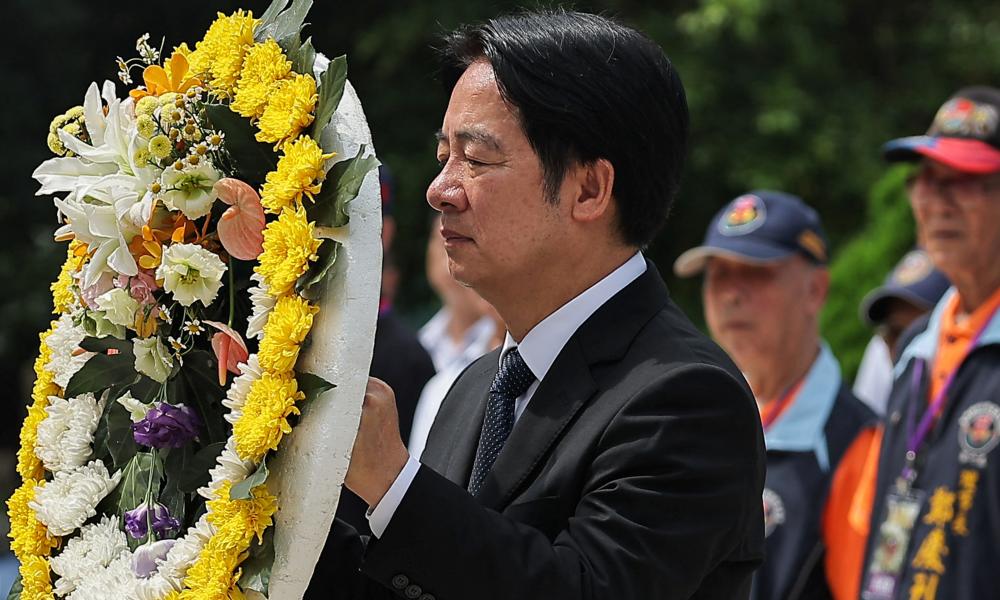
If the Chinese Communist party truly believes it has a territorial claim to Taiwan, then it should also be trying to take back land from Russia, Taiwan’s president, Lai Ching-te, has said.
Lai made the remark in an interview to local media on Sunday, noting Beijing’s very different approach to two similar historical moments of territorial loss.
Under the rule of Xi Jinping, the CCP claims Taiwan is a Chinese province run by illegal separatists, and he has vowed to annex Taiwan under what it calls “reunification”.
Beijing says Taiwan has been part of China since “ancient times” but was taken by Japan during the “century of humiliation”, the period between 1839 and 1949 during which China was repeatedly subject to defeat and subjugation. Complete restoration of China’s losses in that time is a driving narrative of the CCP, and today is largely focused on Taiwan.
However, Lai, who was elected president in January, noted that China also lost land to Russia during that period but was not making any effort to take it back. He said this showed Beijing’s plans to annex Taiwan – which it has not ruled out using force to achieve – were not driven by territorial integrity.
“If it is for the sake of territorial integrity, why doesn’t it take back the lands occupied by Russia that were signed over in the treaty of Aigun? Russia is now at its weakest, right?” he said, referencing an 1858 treaty in which Russia annexed about 1m sq km of Chinese territory, including Haishengwei – today known as Vladivostok.
“You can ask Russia (for the land back) but you don’t. So it’s obvious they don’t want to invade Taiwan for territorial reasons,” Lai said.
He said Beijing’s true motivations were geopolitical, wanting to change the world order in its favour. Taiwan is a major island in the first island chain of the Pacific, and control would give the CCP highly strategic access and passage, as well as increased control of the Taiwan strait.
Wen-ti Sung, a China analyst at the Australian National University, said the treaty of Aigun was China’s most humiliating defeat of the 20th century, in terms of total land area lost, but noted that Chinese officials had repeatedly attended Russian economic forums in Vladivostok, “thereby conferring legitimacy to Russian rule over the territory”.
“If the driver of Chinese ambition towards Taiwan is to bring the ‘century of humiliation’ to a complete end then you’d expect China to prioritise taking back from Russia the land lost in the treaty of Aigun,” Sung said.
“But Beijing is not, and barely ever talks about it, let alone gets anywhere near talk that it will recover those territories ‘by force if necessary’.”
The Qing, China’s largest and last imperial dynasty, signed over Taiwan to Japan in 1895 in another “unequal” treaty, and in 1945 at the end of the second world war it was handed over to the Republic of China government, which fled China in 1949 after being defeated by the Communists in the Chinese civil war, establishing an authoritarian government in exile on Taiwan.
Taiwan transitioned to democracy in the late 1980s, and is one of Asia’s most vibrant. Its elected government says Taiwan is a sovereign nation and that its future is for its people, not the CCP, to decide.
China’s government is yet to respond to Lai’s remarks.
Chi-hui Lin and Reuters contributed to this report
EMEA Tribune is not involved in this news article, it is taken from our partners and or from the News Agencies. Copyright and Credit go to the News Agencies, email news@emeatribune.com Follow our WhatsApp verified Channel





